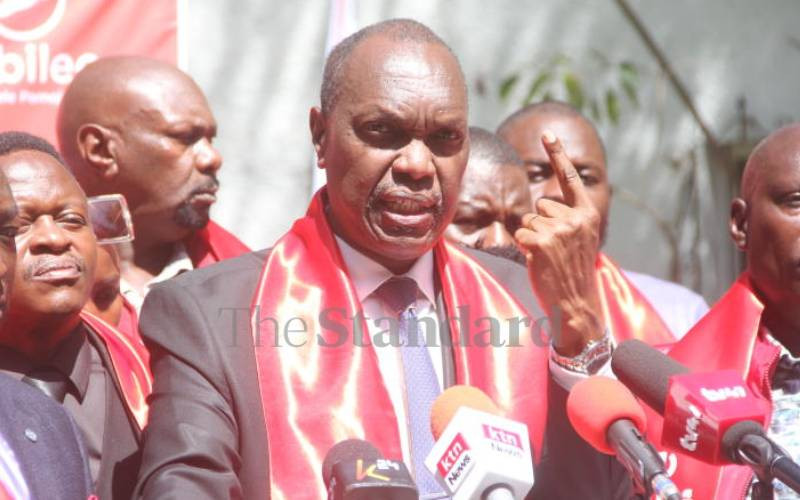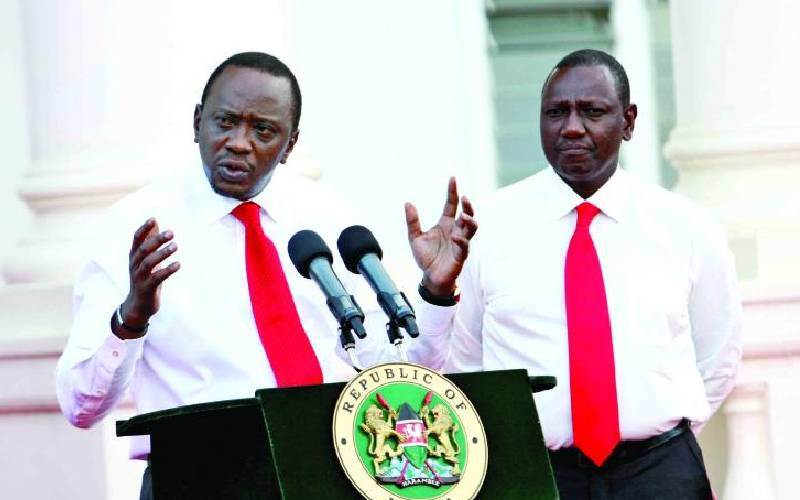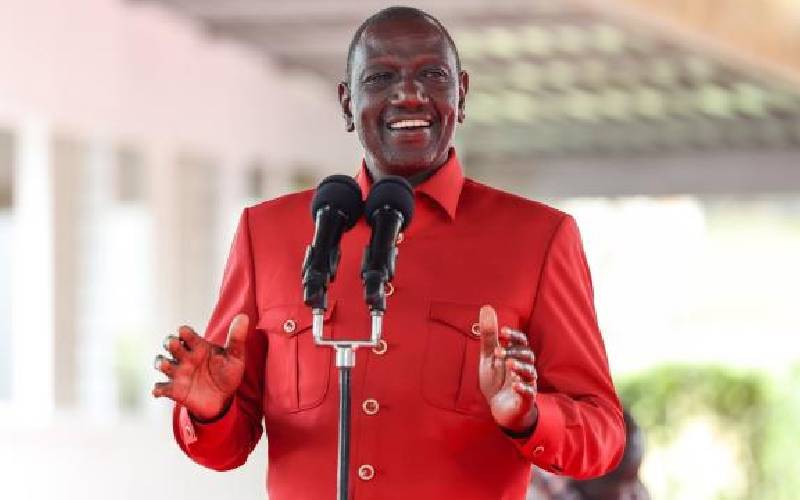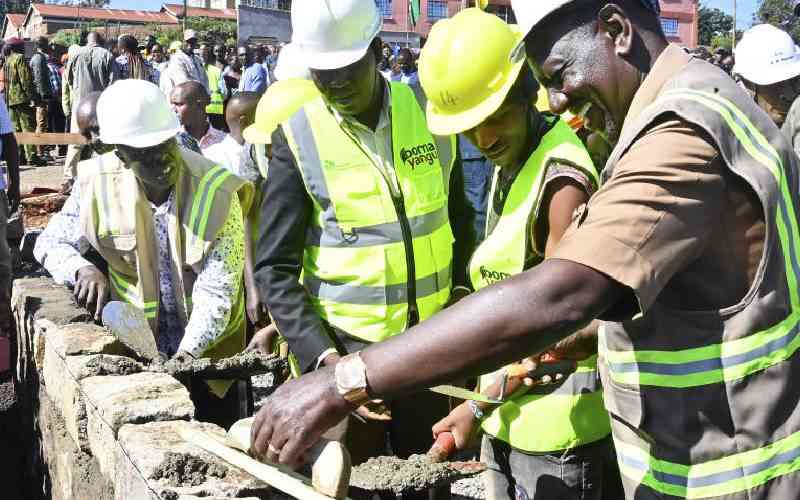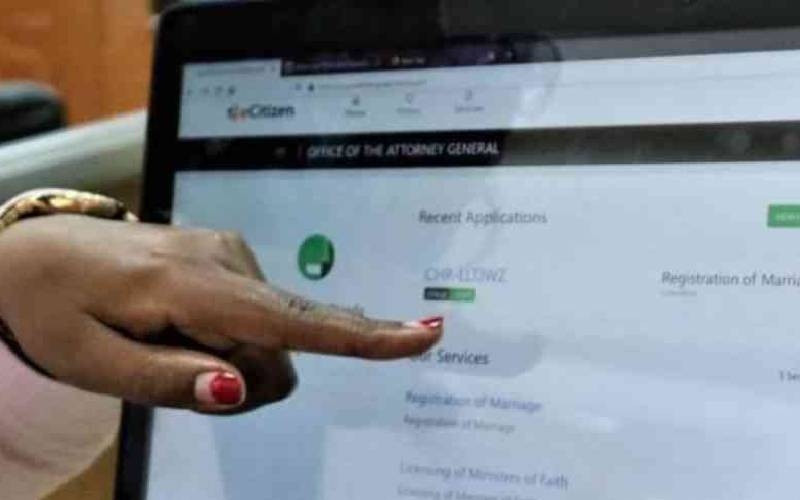
NAIROBI: There are fears that the much-hyped Jubilee recruitment drive using smart cards may turn out to be an avenue for rich aspirants to lock out their not-so-affluent rivals.
Wealthy individuals, many of them incumbents, have bought the cards in bulk and are recruiting members who will vote for them during party primaries.
Though the Jubilee Secretariat insists that the cards are to help identify genuine party members, there are fears that they will be used to derail democracy during primaries.
“We do not have faith in the use of these cards. The system is designed to rig out those who do not have deep pockets, while easily rewarding the wealthy, who are able to buy the cards and distribute them to party supporters,” complained Kendagor Obadiah, who is eyeing the Kapenguria parliamentary seat.
Josiah Murigu, an aspirant for the Kirinyaga Central parliamentary seat, shares the sentiments, saying the party had, by employing the use of the card, portrayed itself as an outfit driven by the wealthy, with those without the financial muscle, mainly youthful aspirants, being disadvantaged.
“We have cases where some aspirants are walking in at Pangani and going away with as many cards as the number of registered voters in a constituency or jurisdiction they have set their eyes on. Jubilee is emerging as the party for the rich; those able to pay the huge sums of registration and nomination fees and, above that, buy many cards for their supporters,” Mr Murigu said.
Many aspirants say the use of the cards will favour those in office because they have easy access to the party’s Pangani headquarters.
They also argue that the decision to use the cards — which must be activated electronically using a mobile phone to complete one’s registration—is likely to disenfranchise party supporters in areas not covered by network or even those who do not have the gadgets. The aspirants are allowed a minimum of 200 cards, but there is no limit to the maximum cards that one can buy.
But the head of the party’s secretariat, Raphael Tuju, sought to allay the fears, maintaining that Jubilee must have a means of securing its membership.
He said some aspirants were buying the cards in large numbers to distribute to their supporters, but observed that it would be difficult for them to use the Sh20 document to sway members to support them if they are not popular on the ground.
“We are not convinced that a Sh20 incentive made through helping a party member register would sway a voter who is opposed to you. The majority will welcome the gesture to help them register but then when it comes to the nominations, vote with their conscience,” argued Mr Tuju.
The party executive revealed that the party had sold more than five million cards and target to raise the number to between seven and eight million in the next two weeks, when the registration will stop to give way for preparations for the nominations.
“We do not want to open up our party processes to people who are not members of Jubilee, and therefore only the card-bearing ones, whose details are captured as registered, will be allowed to participate in the nominations,” explained Tuju,
He, however, said there would be backup, especially in areas where telephone network might fail, making it impossible for the system to scan the card.
Stay informed. Subscribe to our newsletter
In Nakuru, aspirants faulted the criteria used in issuing the cards. David Macharia, an aspirant for Biashara Ward in Nakuru Town East, said the party should reconsider the use of the cards.
fake ones
Aspiring Nakuru Town East Ward candidate Catherine Waweru supported the use of the cards.
“We have heard about the smart cards and also that there are some fake ones in circulation. Whether we use them or not, IEBC and the party must ensure free and fair nominations,” she said.
County Speaker Susan Kihika, who will vie for the Nakuru Senate seat, also welcomed the use of the cards but also emphasised that they must be genuine.
Nakuru County Jubilee Party Chairman David Manyara said the party has introduced measures to ensure that only genuine cards are used.
Manyara also advised those who may not have money to buy the cards to befriend wealthy aspirants.
“In politics you have to be smart. You can befriend a sitting governor, MCAs, MPs, and other wealthy leaders who have bought the cards in bulk and distribute them to your supporters,” he said.
Kuresoi South aspirant Peter Kettienya challenged the party’s leadership to address the concerns over the cards.
In Western Kenya, some aspirants dismissed claims that incumbents have an advantage over others.
Bungoma Governor Kenneth Lusaka said 50,000 cards have been distributed in the area.
Mumias East MP Benjamin Washiali said he has bought 15,500 cards.
In the Mt Kenya region, controversy is also simmering with claims that wealthy politicians could tilt the scales in the nomination process as they have the capacity to buy many cards.
The trend is evident in counties such as Meru, Murang’a, Embu, and Kirinyaga, where aspirants are distributing the cards.
In Meru, Jubilee Party Organising Secretary Joshua Baariu said any aspirant or supporter is free to buy the cards at Sh20 apiece and sell them to supporters at the same price.
 The Standard Group Plc is a
multi-media organization with investments in media platforms spanning newspaper
print operations, television, radio broadcasting, digital and online services. The
Standard Group is recognized as a leading multi-media house in Kenya with a key
influence in matters of national and international interest.
The Standard Group Plc is a
multi-media organization with investments in media platforms spanning newspaper
print operations, television, radio broadcasting, digital and online services. The
Standard Group is recognized as a leading multi-media house in Kenya with a key
influence in matters of national and international interest.
 The Standard Group Plc is a
multi-media organization with investments in media platforms spanning newspaper
print operations, television, radio broadcasting, digital and online services. The
Standard Group is recognized as a leading multi-media house in Kenya with a key
influence in matters of national and international interest.
The Standard Group Plc is a
multi-media organization with investments in media platforms spanning newspaper
print operations, television, radio broadcasting, digital and online services. The
Standard Group is recognized as a leading multi-media house in Kenya with a key
influence in matters of national and international interest.


